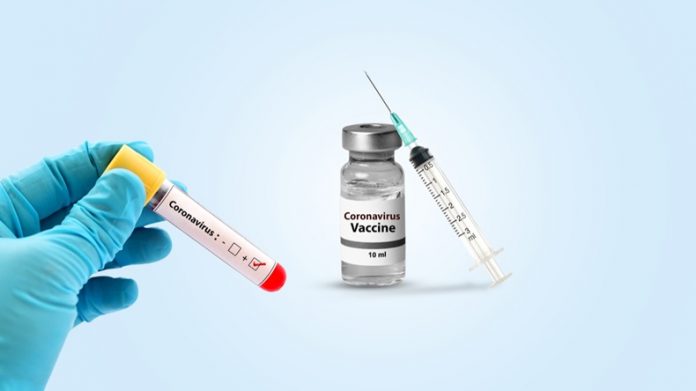This article is written by Aditi Aggarwal, from Symbiosis Law School, Noida. The article discusses the legal procedure for approval of Bharat Biotech’s Covaxin along with the regulatory pitfalls in the same and the way ahead.
Table of Contents
Introduction
The COVID-19 pandemic has changed the global regulator into a fast-track procedure for pharmaceutical approval and has brought an involvement on a wider level in mutual agreement for providing a drug of critical value to the general public.
To combat this pandemic, many institutions have allied. The World Health Organisation (WHO) has long advocated for cooperative methods since they improve the efficiency of regulatory authorities while also avoiding duplication. During the current times, the actual provisions of the law are being modified or applied in such a way so that vaccines are approved at a faster rate.
An overview of Covaxin and its approval in India
Covaxin (a whole Virion inactivated Coronavirus Vaccine) is India’s first indigenous and highly purified and inactivated 2 dose SARS-CoV2 vaccine, developed by Bharat Biotech BSL-3 (Bio-Safety Level 3) bio-containment facility, one of its kind in the world, in cooperation with the National Institute of Virology (NIV), which is a branch of the Indian Council of Medical Research (ICMR). The Research Council is the official institution for medical research in India.
On January 3, 2021, the vaccine was approved for “restricted use in the public interest in an emergency, as a sufficient preventive measure, in clinical trial mode”. The partly studied vaccine was approved based on results from phase 1 and 2 clinical trials through an accelerated process. This move has been in controversy and questioned by domain experts.
Emergency use authorization can only be granted after the safety and effectiveness are confirmed in phase 3 clinical studies that are usually designed and implemented to meet the requirements of expert committees and regulatory agencies. But in exceptional circumstances, if ongoing trials are based on strong evidence of safety and effectiveness, approval may be considered.
The approval of the Covaxin was restricted and conditional when Union Health Minister Harsh Vardhan declared that the people who would receive the shots would be monitored in the same way as volunteers in clinical trials are being monitored. This led to many domain experts expressing their surprise over the decision as many of them pointed out that clinical trial-related data has not been made public.
How does India approve vaccines in normal circumstances
What laws/rules regulate the approval of new drugs and vaccines
The New Drugs and Clinical Trials Rules, 2019, enacted under the Drugs and Cosmetics Act of 1940, provides many rules that must be followed for new drug reviews, clinical trials, and vaccination approvals. The rules were notified in March 2019. The Rules provide for standards for ethical trial conduct and norms to follow for allowing vaccines and drugs in an emergency, in addition to defining processes for requesting permission for clinical trials and new drugs.
A key aspect of the approval of vaccines or drugs in India is the requirement to conduct clinical trials in the country from phase I to phase III.
Steps that are required to be fulfilled for approval of a vaccine
The approval of a vaccine under normal circumstances can be explained in the following steps:
- Identifying and developing an appropriate strain of vaccine which is potentially safe and immunogenic.
- The vaccine strain’s full characterization by in-vitro experiments.
- Pre-clinical study in small animals for determining the dose and safety regime. The animals can be mice, guinea pigs, rabbits, etc.
- Pre-clinical study in large animals for determining the potential dose and formulation, protective efficacy, and safety.
- Then, phase-I human clinical trials are carried out for establishing the safety of the vaccine on less than 100 individuals.
- After phase-I trials, Phase-II human clinical trials are usually carried out on less than 1000 individuals for determining the immune protection.
- Phase-III human clinical trials are then carried out to determine the efficacy. The numbers range in several thousand and regulatory approval is accorded after successful completion of phase III studies.
- Phase IV human clinical trials refer to post-marketing surveillance studies, the data of which is analyzed for long-term decision-making.
Who takes the approval decision
The ultimate authority to approve a vaccine or any other drug is the ‘Central Drugs Standard Control Organisation (CDSCO), which works under the Ministry of Health and Family Welfare. The authority is headed by the Drug Controller General of India (DCGI). CDSCO also gives permission to manufacturers to conduct clinical trials and to stock and manufacture the vaccines – before conducting the trials.
Data relating to the three phases of clinical trials along with pre-clinical studies
Before approval, it was brought to the notice of the CDSCO that M/s Bharat Biotech has generated safety and immunogenicity data in a variety of animal species, including rabbits, Syrian hamsters, mice, rats, and challenges tests on non-human primates (Rhesus macaques) and hamsters.
On about 800 individuals, phase I and phase II clinical trials were conducted, and the findings indicated that the vaccine is safe and generates a significant immunological response. The Phase III effectiveness study began in India with 25,800 volunteers, and as of January 3, 22,500 people have been vaccinated across the country. The vaccine was deemed to be safe based on the data provided.
The legal procedure for the approval of Covaxin
Covaxin has been granted approval for ‘restricted use in an emergency situation in the public interest as an abundant precaution, in clinical trial mode’ according to the Subject Expert Committee (SEC) minutes of the CDSCO.
Government notification
Section 26B of the 1940 D&C Act authorizes the central government to supervise or restrict the manufacture, sale, or distribution of drugs by notification, provided that the drugs are essential to meet the requirements of emergencies arising due to natural disasters or epidemics, and it is expedient or necessary to do so for the public interest.
In the case of Covaxin, this provision was used by the central government to issue a notification to manufacturers for obtaining permission to stock and manufacture the vaccine on completion of clinical trials successfully. The manufacturers were allowed to defer the requirements of Rule 81 and 83 of the NDCT 2019 Rules by the notification.
Emergency use authorization
Under the NDCT 2019 vaccine approval rules, the term ‘emergency use authorization’ has not been used. It was only after the usage of the term in the US., it became popular in India.
But there is a provision called “accelerated approval” (mentioned under the second schedule) applicable in “special situations” under the rules and the Covid-19 pandemic is a special situation. According to the rules, if a new drug (vaccine) aims to treat a serious or life-threatening condition or disease that is particularly relevant to the country, and addresses unmet medical needs, approval may be accelerated.
Another special provision mentioned in the rules under the second schedule stipulates that if Phase II provides that if significant efficacy is observed in phase II clinical trial of the new drug under the prescribed dose for the unmet medical needs of the country’s serious and life-threatening diseases, the central licensing agency may consider granting a marketing authorization based on clinical trial data of phase-II.
However, as per the protocol approved by the central licensing authority, additional post-licensure studies might be conducted after the approval if required for generating the data on a larger population so that further verification can take place and clinical benefits may be described.
Issuance of the DCGI’s statement
The DCGI (Drugs Controller General of India) issued a statement on January 3, 2021. The statement stated that this particular vaccine has been developed on the Vero cell platform and has a well-established track record of efficacy and safety in and outside the country.
Further, the DCGI said that Bharat Biotech, the developer of Covaxin, from its trial on animals had submitted the ‘safety and immunogenicity data, which also includes challenge studies on hamsters and non-human primates (Rhesus macaques) with the drug regulator, the Central Drugs Standard Control Organisation (CSDSCO).
Further, according to the issued statement, the Subject Expert Committee (SEC) reviewed the data on the vaccine’s safety and immunogenicity and recommended that permission be granted for “restricted use in an emergency situation in the public interest as an abundant precaution, in clinical trial mode”, to have more options for vaccinations, particularly in the case of infection by mutant strains. It was also informed that the clinical trial ongoing within the country by Bharat Biotech will continue even after the approval.
Whether there was an application of ethical guidelines post-approval
National Ethical Guidelines for Biomedical and Health Research lays down a mechanism for the monitored emergency use of unregistered and experimental interventions (‘MEURI’). Emergency monitoring is allowed only after getting approval from the National Ethics Committee. Further, it has to be undertaken under the local ethics committees’ oversight and after following the consent process. In the current circumstances, it can be assumed that the regulators might have relied on that research involving human participants.
However, since the CDSCO has already given approval to Covaxin, it is unclear whether the safeguards under MEURI would be applied or not, as such use only applies to unregistered interventions. In any event, judging from the SEC meeting, none of these safeguards appears to have been stipulated.
Regulatory pitfalls
Based on the material now accessible in the public domain, the current approval procedure appears to be plagued by two significant regulatory pitfalls:
- The use of ambiguous terminology.
- A lack of regulatory advice on post-approval processes and vaccination use.
Further, though the provision under the NDCT rules 2019, allows for accelerated approvals, it does not shed any light on the nature of such permission and the criteria that would apply to the use of such drug permitted through an accelerated procedure. This creates a regulatory gap, leaving this aspect up to the DCGI’s judgment. This difficulty is exacerbated in the current scenario by the fact that the conditions (if any) laid forth by the DCGI are not yet available in the public domain.
Need for a clearer framework for emergency use authorization
- After discussing the regulatory pitfalls in the current covid-19 regime, it is evident that India as a country needs regulatory clarity and specificity on vaccine approval. A better and unambiguous regulatory environment would make the vaccine administration process less susceptible to suspicion and controversy.
- It might also help in gaining the confidence of common citizens and might reduce vaccine hesitancy. In crux, it may help make the vaccination program more successful.
- The framers of the regulatory framework can take ideas from other countries’ frameworks on the approval of vaccines. For instance, where on one hand the Central Licensing Authority or the DCGI decides on the post-approval vaccine conditions in India, on the other hand, the United States has statutes like the Federal Food, Drug and Cosmetic Act 1938, the Pandemic and All-Hazards Preparedness Reauthorization Act of 2013, that grants authority to the Food and Drug Administration (FDA). During a declared state of emergency, FDA after authorization can then make the availability of an unapproved drug to the people. The law in the US, thus clearly highlights both pre and post aspects of an emergency approval.
- Regulatory bodies must keep in mind that in an emergency scenario like this, an accelerated response is not adequate unless it is accompanied by correct rationale and restrictions on vaccine use until sufficient clinical evidence of vaccine safety and efficacy is obtained.
Public response
Plea seeking publication of safety and efficacy trial results
Saket S Gokhale, an activist urged the Bombay High Court to issue notice to the Drugs Controller General of India for making available the safety and efficacy results of the Covaxin’s trial to the general public, so that other scientists or external subject matter experts can review it.
Contentions of the petitioner
- It was contended by the petitioner that due to the non-availability of data in the public domain and the vaccine being still in phase 3 of the clinical trial, there is a possibility of harm that can be caused to the general public that is taking the vaccine.
- It was also submitted that the right to information (RTI) application that was submitted by the petitioner seeking relevant data relating to Covishield and Covaxin was given no response by the concerned information officer.
- It was also stated that since the approval granted to Bharat Biotech’s Covaxin is for “restricted use in an emergency situation,” any person receiving Covaxin is first required to sign a mandatory consent form, which is impossible as it is connected with two risks: bearing the consequences by taking the vaccine or remaining unvaccinated and making oneself a suspect to a Covid-19 infection.
Notice issued to the state
The Bombay High Court has issued notice to the state for a reply regarding this plea.
Plea seeking booster dose to facilitate international travel
On August 10, the Kerala High Court issued a notice to the Centre and the state governments as to why the petitioner, who is a non-resident Indian (NRI) and had already taken two doses of Covaxin, cannot be granted a third dose because it is a matter of his livelihood.
The counsels for the two governments had previously notified the court that they needed to seek directions on the matter since providing a third vaccination shot or mixing and matching of vaccines was not yet clinically authorized.
Contentions of the petitioner
- The petitioner informed the court that because Covaxin is not recognized globally, he would not be able to travel abroad. The petitioner further stated that he must return to Saudi Arabia by August 30 in order to fulfill his visa restrictions and that if he does not, he risks losing his job.
- It was also submitted by the petitioner that he was ready to bear the risk of taking the third jab. He also brought to the notice of the court that the option of a third jab is available in many countries and some studies have been conducted, according to which it was effective.
- He further stated that even if he is able to enter Saudi Arabia via connecting countries, he would be subjected to mandatory quarantine and a new set of vaccinations which are approved there and that the entire procedure, including the circuitous path, would cost him around three lakh rupees.
The affidavit filed by the Centre
Centre in reply to the notice of the court filed an affidavit stating that those who have already taken two doses of covid vaccine cannot be administered a third dose. It was also said that the covid vaccination guidelines do not allow for a third dose.
Report on Covaxin published by Anvisa, the Brazilian drug regulator
The Brazilian Government ordered 20 million Covaxin doses from Bharat Biotech. At a time when 9 million doses of Covaxin were already administered in India, the Brazilian drug regulator ‘Anvisa’ published a report on 30th March 2021 on its website that pointed out flaws in the making of Covaxin by Bharat Biotech. As a result, Brazil cancelled its order.
As per the report:
- Bharat Biotech had missed crucial stages in ensuring that the SARS-COV-2 virus in the vaccine was totally destroyed or unable to replicate in the human body.
- As a result, there is a genuine possibility that some batches of Covaxin may infect patients with the disease they are supposed to protect them from.
The news created havoc among Indians as to how the Drug Controller General of India (DCGI), approved the vaccine if its manufacturing process had flaws. When asked by the firm’s founder and chairman, Krishna Ella, he claimed that it was Brazilian nationalism that led the regulators to publish the report, along with a desire to keep a vaccine made in India out of Brazil.
Conclusion
The Covaxin’s emergency use approval was in many controversies when it was announced. While some expressed their disapproval of the same, others were happy that India’s indigenous vaccine was finally approved. Though there are many loopholes and strong opinions regarding the Covaxin approval, the fact that it has been legally approved cannot be forgotten and the common citizens can give a thought to trusting the vaccine approvers.
References
- https://vidhilegalpolicy.in/blog/the-curious-case-of-covishield-and-Covaxin-approvals/
- https://www.indiatoday.in/coronavirus-outbreak/vaccine-updates/story/Covaxin-approval-row-how-india-approves-vaccines-explained-1756049-2021-01-05
- https://www.pib.gov.in/PressReleasePage.aspx?PRID=1685761
- https://www.news18.com/news/india/as-india-waits-for-covid-19-shot-a-look-into-accelerated-approval-for-vaccines-and-how-its-cleared-3155603.html
- https://www.livemint.com/news/india/covid-vaccination-guidelines-against-third-dose-centre-tells-hc-11629211559312.html
- https://www.livemint.com/science/news/how-Covaxin-became-a-victim-of-vaccine-triumphalism-11622022760541.html
- https://www.livelaw.in/top-stories/bombay-high-court-covid-19-Covaxin-clinical-trial-saket-gokhale-168466?infinitescroll=1
- https://www.livelaw.in/news-updates/kerala-high-court-notice-plea-for-booster-dose-for-nris-administered-with-Covaxin-for-international-travel-178890
LawSikho has created a telegram group for exchanging legal knowledge, referrals, and various opportunities. You can click on this link and join:
 Serato DJ Crack 2025Serato DJ PRO Crack
Serato DJ Crack 2025Serato DJ PRO Crack











 Allow notifications
Allow notifications


